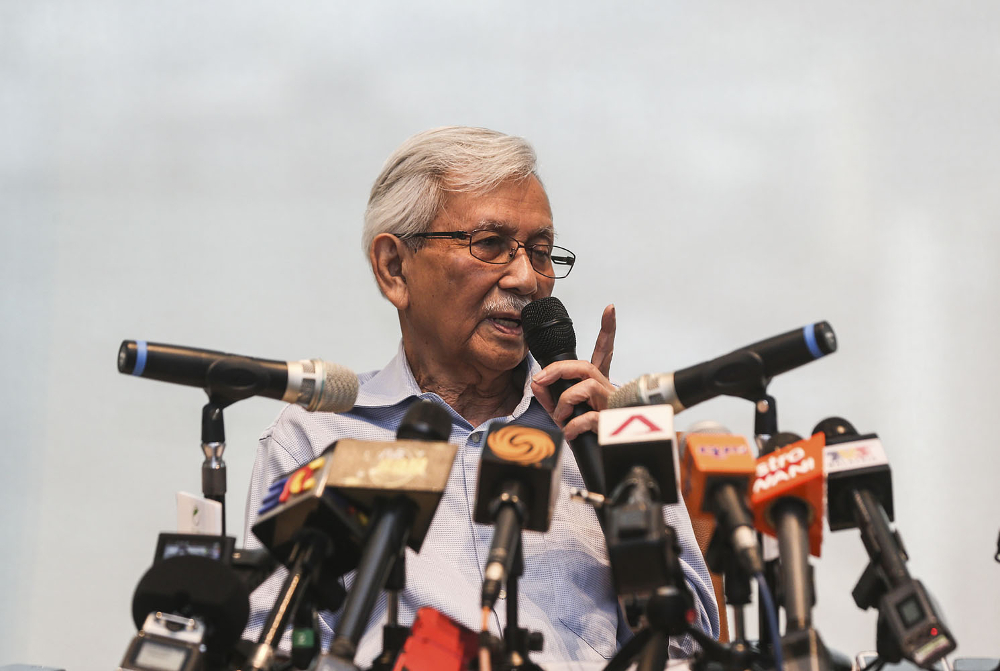KUALA LUMPUR, May 29 — Former finance minister Tun Daim Zainuddin today said that the practice of government bailouts is necessary if it is done in the interest of the people.
In an interview with Astro Awani aired tonight, the former chairman of the Council of Eminent Persons (CEP) said that the government is sometimes forced to make such a move, citing Lembaga Tabung Haji (TH) as a prime example.
He added that government bailouts are not an alien practice, as many countries do it too.
“When the problem affects the people, sometimes we are forced to bailout.
“For example, Tabung Haji. Without a bailout, it would have turned into a sensitive issue. We saw that after the bailout, now it has started making profits again,” he said, adding that Pakatan Harapan (PH) found that there were many government agencies which were riddled with financial problems, after it took over Putrajaya.
“It is not small. Each agency spent up to billions. So, if this is not corrected, the people get angry too. When it’s corrected, the Opposition party gets angry and the ratings agencies are also angry. They ask why a bailout?
“But a bailout is not new. The whole world does it,” he said during the interview.
On May 13, Bernama reported that TH had posted a sustainable performance by recording a net profit of RM440 million in the first quarter ended March 31, 2019.
This, it reported, was as a result of the successful completion of its restructuring and rehabilitation process which began in December last year.
During the quarter, Bernama reported that TH’s earnings totalled RM623 million.
TH revealed late last year that it was short of RM4.1 billion in assets when it paid out the 2017 dividends to depositors, being in breach of the Tabung Haji Act 1995 which states that hibah, or dividends, can only be paid if the fund had made distributable profits.
In December last year, the fund said that the Finance Ministry (MOF) via a Special Purpose Vehicle (SPV) will be acquiring its underperforming properties and equities in exchange for RM10 billion in sukuk and RM9.9 billion in Islamic redeemable convertible preference shares (RCPS-i).
The move came after Minister in the Prime Minister Department Datuk Mujahid Yusof Rawa claimed TH had accrued up to RM4.1 billion in losses as a result of poor investments, most of them highly questionable.
Barisan Nasional (BN) backbenchers were however highly critical of the planned asset transfers, noting that some of the equities were in highly profitable companies like Malakof or UEM Sunrise.
In a media interview last month, Defence Minister Mohamad Sabu said that the expenditure of most ministries have been temporarily halted to channel funds to bailout TH and the Federal Land Development Authority (Felda).
The politician known as Mat Sabu said that a substantial part of his own ministry’s budget had to be diverted to save the two “Malay institutions”.
On April 10, Economic Affairs Minister Datuk Seri Azmin Ali said that several assets under the Felda would be liquidated to improve the agency’s cash flow and strengthen its financial position.
He said the government has identified several potential non-strategic assets to be disposed of but stopped short of revealing the assets that may be sold off.
The government had tabled the Felda White Paper in Parliament early this month, outlining the problems faced by the state-owned palm oil giant, and its poor finances and spending.
The government will also be injecting a RM6.23 billion infusion in the form of loans and grants.



















